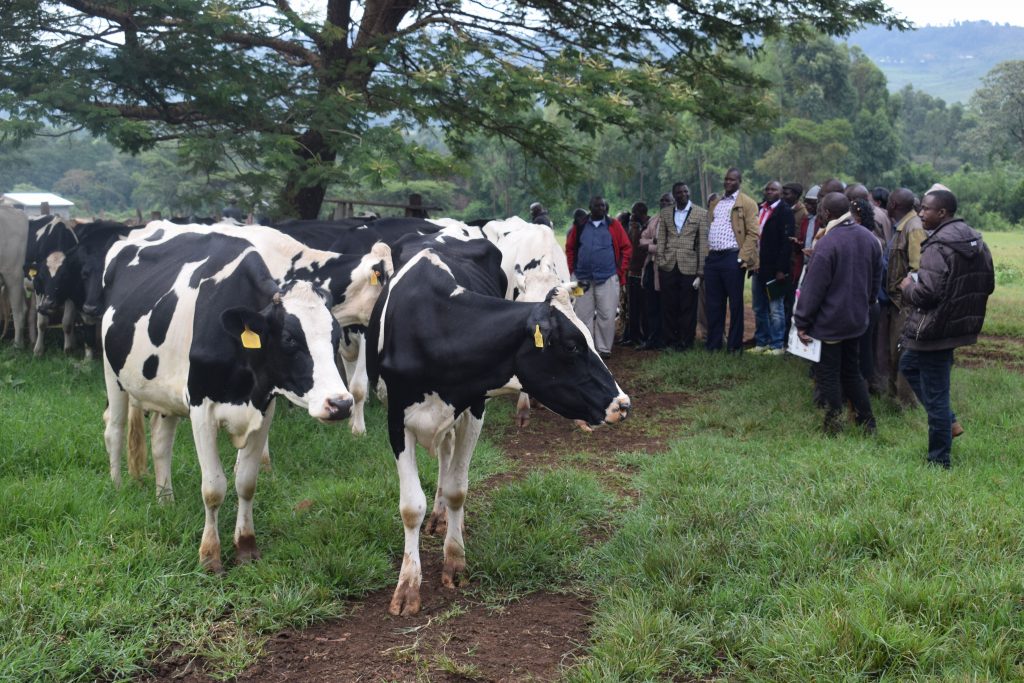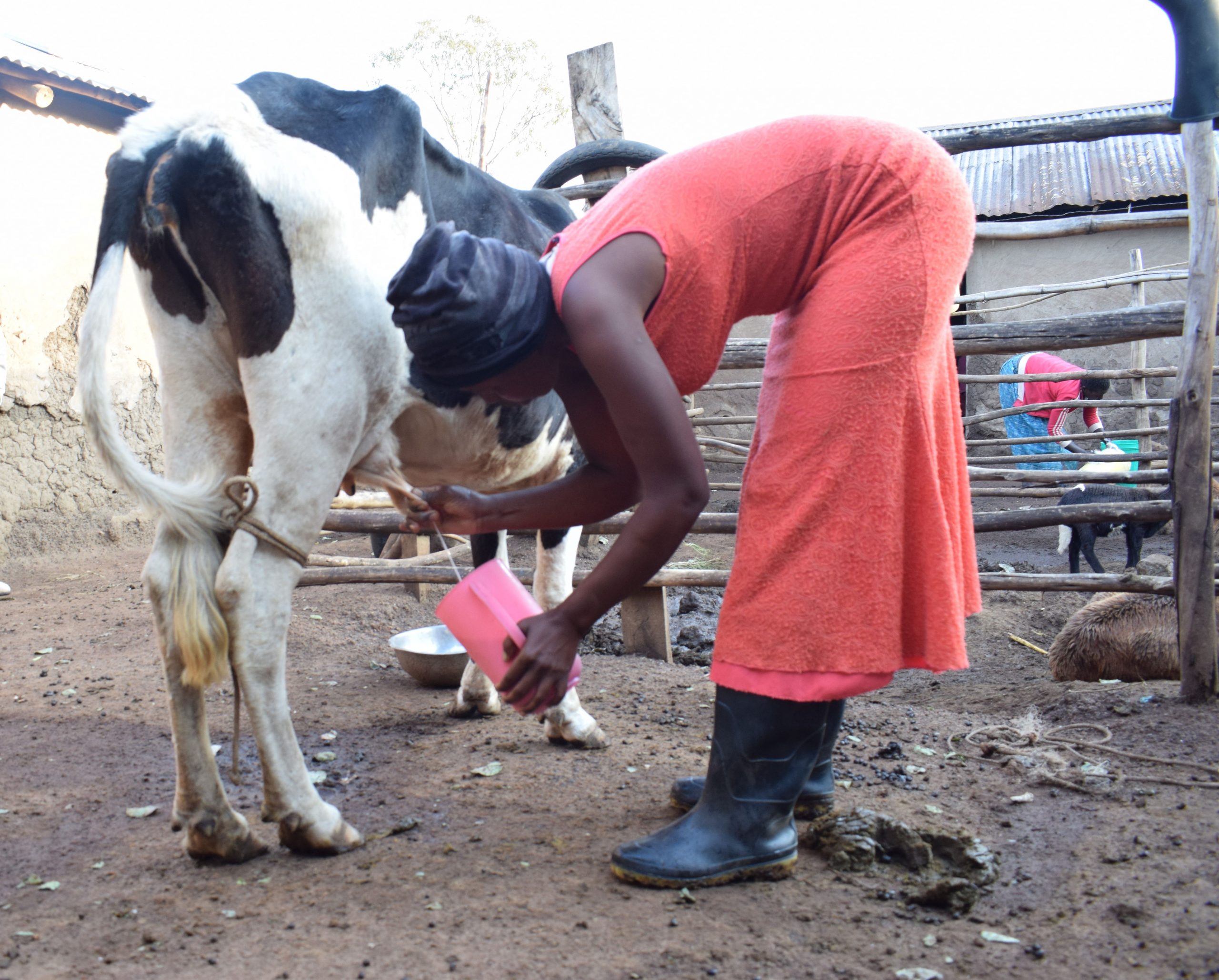Nuru Kenya has significantly improved the rural livelihoods of communities in Migori County by supporting the establishment of 14 farmer-led, farmer-managed, and farmer-owned cooperatives (co-ops). Support includes capacity building through training on: modern agricultural practices, governance, business skills, food security, and nutrition, as well as market linkages that support the community in sustainably diversifying their income streams.
Ikerege Farmers’ Cooperative Society is one of these 14 co-ops. Formed in 2017, it currently has 140 shareholders (56 women and 84 men). The farmer organization has seen tremendous growth over the years. Based in Ikerege Town in Kuria West Sub-County of Migori County, Kenya, it primarily promotes cereals production and dairy farming as the main economic activities.
With the support of Emmah Moraa, co-op manager, Ikerege co-op members pooled their resources together to organize a learning trip. In August 2019, 24 farmers (10 women and 14 men) from the co-op visited Keiyian Farmers’ Co-operative Society based in the neighboring Narok County. The trip provided an opportunity to learn from their counterparts on dairy farming matters, including breeding through artificial insemination, supplementing dairy cows with dairy meal and calf pellets, tick control through weekly spraying and vaccination against deadly diseases, construction of safe pens for calves, and fodder conservation in the form of hay and silage.
Rebecca Chelangat from Naora village–a dairy farmer, co-op member, and treasurer of Ikerege co-op–was part of the team that travelled to Keiyian co-op for the visit. Farming is Chelangat’s sole source of livelihoods for herself and her eight children. From the proceeds, she has been able to provide for her family, take her children to school, and meet her family’s socio-economic and medical needs.
“I currently have three improved heifers that I acquired through the Nuru dairy program, and I get over six liters of milk daily from each. This is an upgrade from the 1.5 liters that I get from each of my eight zebu cows. The milk is so nutritious, and my family is healthy. Two liters is enough to feed them. I sell the surplus to get the income that I use to take care of all their needs. Without Nuru, I wouldn’t be financially stable.” –Rebecca Chelangat
These farmers were inspired by a similar visit back in December 2018 when Nuru Kenya facilitated a trip for select members of the executive committees from the 14 cooperatives to visit Keiyian Farmers’ Cooperative Society to learn from the cooperative members and management committee on cooperative management and dairy farming. Farmer learning exchanges like this enhance adaptive capacity while improving knowledge and attitude change towards investing in the cooperative. It also supports the members’ financial and social sustainability at the cooperative and household levels.

Officials from Nuru supported cooperatives during a field visit at Keiyian Cooperative Society
Keiyian co-op has provided inspiration and motivation to several farmers from the Nuru-supported co-ops. Having been started in 1964 by 20 farmers, it currently has 44 shareholders, and each year, they issue dividends to their members. Their main activity is the dairy value chain. Nuru Kenya–through its empowerment program for locally-led, sustainable farmer organizations–encourages the management committees and the farmers to be creative and learn from their fellow cooperators at Keiyian co-op.
The practical learning at Keiyian is part of capacity building in dairy farming and technical assistance offered by Nuru Kenya to facilitate the transfer of skills and knowledge to Ikerege dairy farmers. As a result of the visit, knowledge and skills in dairy management has improved, with a total of 19 farmers having accessed 21 heifer loans through Ikerege Farmers’ Cooperative. The dairy program seeks to sustainably improve the livelihoods of farmers through increased milk produce and incomes. Nuru Kenya is currently sustainably diversifying farmers’ income alternatives through dairy farming by enabling them to access these quality heifers to increase livelihood opportunities and income streams.


